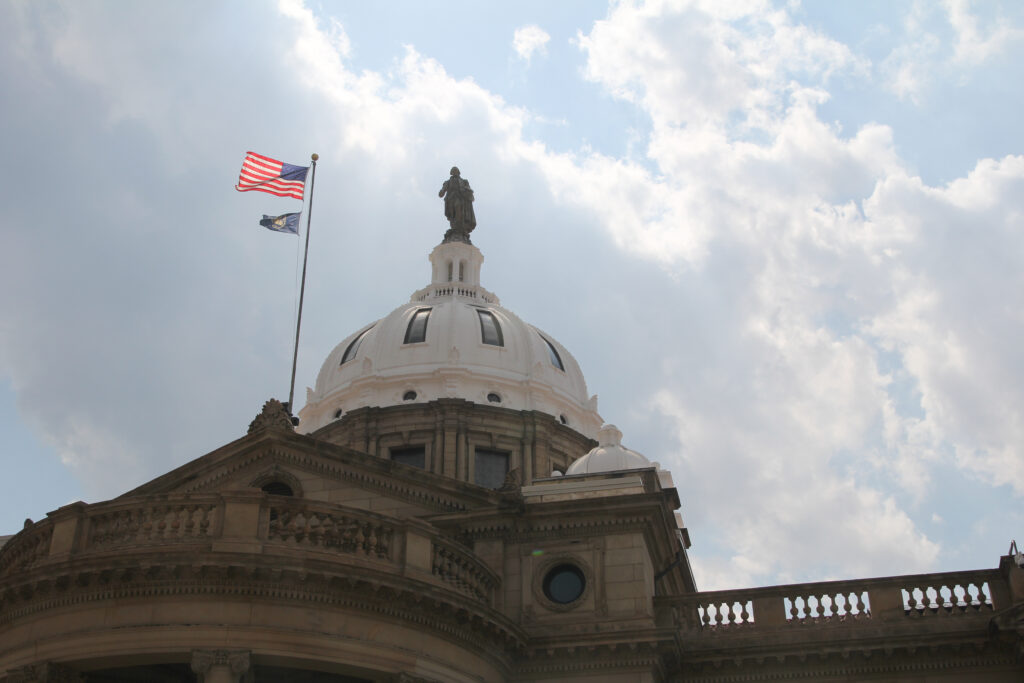
In the United States it is common to hear elected officials and organizations speak on the importance of democracy; however, it is a unique privilege to actually witness the process and contribute to it. One critical pillar of CCJ’s work is “Democracy”, which has been made increasingly relevant as voter protection and election integrity are top of mind issues throughout the country. This year’s national election was CCJ’s most significant opportunity to be involved with pre-election, election-day, and post-election processes.
In the months leading up to the election, CCJ staff was involved with coalitions focused on election protection and ensuring all eligible voters were able to make their voices heard. Additionally, we received training on investigating election-day issues and how to properly observe the post-election ballot canvass from the American Civil Liberties Union (ACLU). On election day, the entirety of CCJ was on-call to monitor/report any voter issues, assist voters with finding their polling location, and even facilitate transportation to the polls when necessary.
Following election day, the next major steps in the voting process are what is known as the Official Ballot “Pre-canvass” and “Canvass”. The pre-canvass process consists of county election staff performing the initial sort of mail-in and provisional ballots, as well as separating those that contain potentially disqualifying errors for further review. On the Friday immediately following the election, the ballot canvass commences. During the ballot canvass, mail-in ballots (with issues) and provisional ballots (all) are reviewed individually by either the Board of Elections (in smaller counties), or by an appointed Canvass Board that is composed of both Republican and Democrat representatives of the county. The ballot review process roughly follows these steps:
- The County Election’s Director/Manager introduces a ballot and explains why it was cast provisionally
- If applicable, they then explain relevant voting rules that indicate whether a ballot can be accepted or rejected
- Election Board or Canvass Board votes to accept or deny a ballot based on this guidance
Throughout this entire process general observers and legal representatives on behalf of political parties or candidates are welcome to review and challenge ballot decisions. While anyone present can review the ballots, only the lawyers can actually issue a challenge. A hearing is then held after the canvass where a final decision is made on ballots that were challenged by any lawyers present.
In my experience as an observer of the Greene and Washington County Canvasses, I found the process to run very efficiently and effectively. Both Election Directors clearly explained the reasoning that led to a provisional ballot being cast and accurately communicated any issues that may be present. Provisional ballot issues are classified as either “fatal” or “non-fatal.” Fatal errors include missing at least one voter signature (provisional ballots require two), discovering a voter is registered in another county, or determining someone is not registered to vote at all. Non-fatal errors are most commonly associated with misdating the ballot or a missing signature from the precinct’s Judge of Elections. Based on my previous training and the guidance issued by the Election’s Director, I believe all legal ballots were counted, and all ballots with fatal errors were discarded. This is not my opinion alone, as not a single decision made by the Washington County Canvass Board was challenged by any of the several lawyers present.
State Congress can move slowly, and is not always at the forefront of modern voter protection expectations, which can lead to a lacking State Election Code. Consequently, some decisions regarding voter law are left up to guidance issued by judges in relevant court cases. Local election offices remained vigilant and even the most recent court rulings regarding mail-in and provisional ballots were properly implemented. For example, CCJ was recently involved in litigation that resulted in Washington County having to notify voters of disqualifying mail-in ballot errors, and allow them the opportunity to cast a provisional ballot. Not only did the Election’s Office adapt to this ruling quickly, but communicated the situation to the Canvass Board, and was transparent about the number of ballots cast in this manner.
This is not to say that confusion and disagreement were completely absent from the task. Sometimes the Election or Canvass Board would be faced with a particularly complicated ballot situation, or they simply were unsure of how to interpret the relevant voter laws. There were other instances of members vocalizing disagreements or political beliefs contrary to what the law instructs them to do regarding a ballot. However, in all moments of confusion or disagreement, the Election’s Director aided in discussing tricky cases or reinforcing the applicable rules, which ultimately would lead to voting on the correct outcome.
After my experience I have never been more confident in the county employees that execute the election process, as well as the checks and balances in place that ensure legal voters can act on their civil right to democratic participation. I encourage everyone to educate themselves further on the voting standards that are upheld by your local government, and even get involved in the public portions of the operation! By learning and participating, you can better formulate an opinion on what you feel is working well for voters. On the other hand, if you discover something in the process you disagree with, you can be better informed to advocate for change and let your elected officials know!
For more information or to learn more about how you can support CCJ’s election protection efforts, reach out to Gavyn Marinchek, Community Organizer at gavyn@centerforcoalfieldjustice.org
